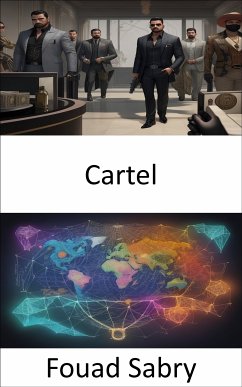What is Cartel
A cartel is a group of independent market participants who collude with each other in order to improve their profits and dominate the market. A cartel is an organization formed by producers to limit competition and increase prices by creating artificial shortages through low production quotas, stockpiling, and marketing quotas. Cartels can be vertical or horizontal but are inherently unstable due to the temptation to defect and falling prices for all members. Additionally, advancements in technology or the emergence of substitutes may undermine cartel pricing power, leading to the breakdown of the cooperation needed to sustain the cartel. Cartels are usually associations in the same sphere of business, and thus an alliance of rivals. Most jurisdictions consider it anti-competitive behavior and have outlawed such practices. Cartel behavior includes price fixing, bid rigging, and reductions in output. The doctrine in economics that analyzes cartels is cartel theory. Cartels are distinguished from other forms of collusion or anti-competitive organization such as corporate mergers.
How you will benefit
(I) Insights, and validations about the following topics:
Chapter 1: Cartel
Chapter 2: Oligopoly
Chapter 3: International Air Transport Association
Chapter 4: United States antitrust law
Chapter 5: Price fixing
Chapter 6: Collusion
Chapter 7: Anti-competitive practices
Chapter 8: Competition law
Chapter 9: Decartelization
Chapter 10: Market power
Chapter 11: Market concentration
Chapter 12: Ultra-imperialism
Chapter 13: Lysine price-fixing conspiracy
Chapter 14: Economic law
Chapter 15: George W. Stocking Sr.
Chapter 16: State cartel theory
Chapter 17: Holm Arno Leonhardt
Chapter 18: Cartel theory
Chapter 19: Compulsory cartel
Chapter 20: Cartel seat (monument)
Chapter 21: Margaret Levenstein
(II) Answering the public top questions about cartel.
(III) Real world examples for the usage of cartel in many fields.
Who this book is for
Professionals, undergraduate and graduate students, enthusiasts, hobbyists, and those who want to go beyond basic knowledge or information for any kind of Cartel.
A cartel is a group of independent market participants who collude with each other in order to improve their profits and dominate the market. A cartel is an organization formed by producers to limit competition and increase prices by creating artificial shortages through low production quotas, stockpiling, and marketing quotas. Cartels can be vertical or horizontal but are inherently unstable due to the temptation to defect and falling prices for all members. Additionally, advancements in technology or the emergence of substitutes may undermine cartel pricing power, leading to the breakdown of the cooperation needed to sustain the cartel. Cartels are usually associations in the same sphere of business, and thus an alliance of rivals. Most jurisdictions consider it anti-competitive behavior and have outlawed such practices. Cartel behavior includes price fixing, bid rigging, and reductions in output. The doctrine in economics that analyzes cartels is cartel theory. Cartels are distinguished from other forms of collusion or anti-competitive organization such as corporate mergers.
How you will benefit
(I) Insights, and validations about the following topics:
Chapter 1: Cartel
Chapter 2: Oligopoly
Chapter 3: International Air Transport Association
Chapter 4: United States antitrust law
Chapter 5: Price fixing
Chapter 6: Collusion
Chapter 7: Anti-competitive practices
Chapter 8: Competition law
Chapter 9: Decartelization
Chapter 10: Market power
Chapter 11: Market concentration
Chapter 12: Ultra-imperialism
Chapter 13: Lysine price-fixing conspiracy
Chapter 14: Economic law
Chapter 15: George W. Stocking Sr.
Chapter 16: State cartel theory
Chapter 17: Holm Arno Leonhardt
Chapter 18: Cartel theory
Chapter 19: Compulsory cartel
Chapter 20: Cartel seat (monument)
Chapter 21: Margaret Levenstein
(II) Answering the public top questions about cartel.
(III) Real world examples for the usage of cartel in many fields.
Who this book is for
Professionals, undergraduate and graduate students, enthusiasts, hobbyists, and those who want to go beyond basic knowledge or information for any kind of Cartel.
Dieser Download kann aus rechtlichen Gründen nur mit Rechnungsadresse in A, B, BG, CY, CZ, D, DK, EW, E, FIN, F, GR, H, IRL, I, LT, L, LR, M, NL, PL, P, R, S, SLO, SK ausgeliefert werden.


